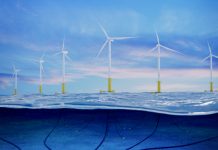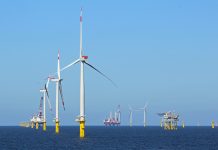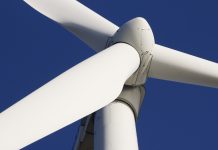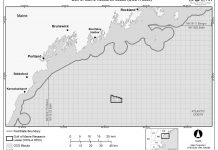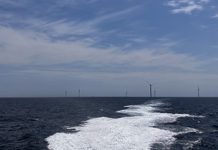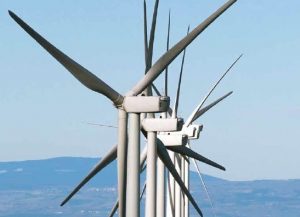The American Clean Power Association (ACP) released a letter to Senate leadership from ACP CEO Heather Zichal and 24 of the leading CEOs and senior leaders in the offshore wind sector raising concerns with language in the House-passed Don Young Coast Guard Authorization Act of 2022. If enacted, the bill would change longstanding rules for manning vessels in U.S. waters and potentially stall offshore wind development, preventing the U.S. from achieving the target of deploying 30,000 MW of offshore wind by 2030.
The ACP letter notes that if this provision is enacted, the U.S. will not see offshore wind energy deployed at scale for many years, and some projects may even be canceled. This would threaten tens of thousands of potential new American jobs in the manufacturing and maritime sectors, affect U.S. energy security objectives, and severely curtail the emissions reduction targets that are dependent upon the industry’s continued development.
The letter was sent to Senate Majority Leader Charles Schumer (D-NY), Senate Minority Leader Mitch McConnell (R-KY), and Senate Commerce, Science, and Transportation Committee Chair Sen. Maria Cantwell (D-WA) and Ranking Member Sen. Roger Wicker (R-MS).
The letter states:
“As written, the House maritime crewing provision is an existential threat to the future of offshore wind in the United States and the immediate result would be the delay and potential cancellation of the 19 offshore wind projects with power offtake contracts or awards. The provision would require, within 120 days of passage, that crews on specialized offshore international construction vessels match the flag of the vessel or be American mariners as a condition of working on the U.S. Outer Continental Shelf … The crewing provision would thus serve to block the use of these international specialized offshore vessels when there are currently no U.S.-flagged specialized construction vessels to do the work needed.”
“A majority of the vessels used by the offshore wind industry will be made in America and crewed by U.S. mariners … In addition to the number of vessels, U.S.-flagged vessels such as crew transfer vessels and service operation vessels will have the greatest amount of vessel hours because they will perform all transportation activities between U.S. ports and offshore wind turbines during the approximately 35-year lifetime of the project,” the CEOs and company leaders said in the letter.
“Offshore wind represents a tremendous opportunity for the American economy, and we have already committed to at least $4 billion in U.S.-flagged vessels, workforce training, and supply chain development. The first step Congress should take to promote continued American offshore wind growth is to focus policy solutions on the root cause of the problem: a lack of U.S. mariners, a shortage of U.S.-flagged ships, and uncertain timing of approvals on offshore wind Construction and Operations Plans,” the letter said.
The letter urges Congress replace the provision with policy incentives to build more U.S.-flagged vessels.
The leaders concluded in the letter, “Ultimately, the offshore wind industry and Congress have the same goal: maximizing the number of Americans employed in offshore wind, including mariners. Building out the domestic offshore wind industry will pay enormous economic development benefits and aggressive deployment of offshore wind will make a material contribution to our domestic energy security. We need reasonable policies and predictable permitting timelines, not impossible mandates.”
The full ACP letter can be viewed here.
ACP’s offshore wind maritime crewing fact sheet can be downloaded here.
More info: www.cleanpower.org



